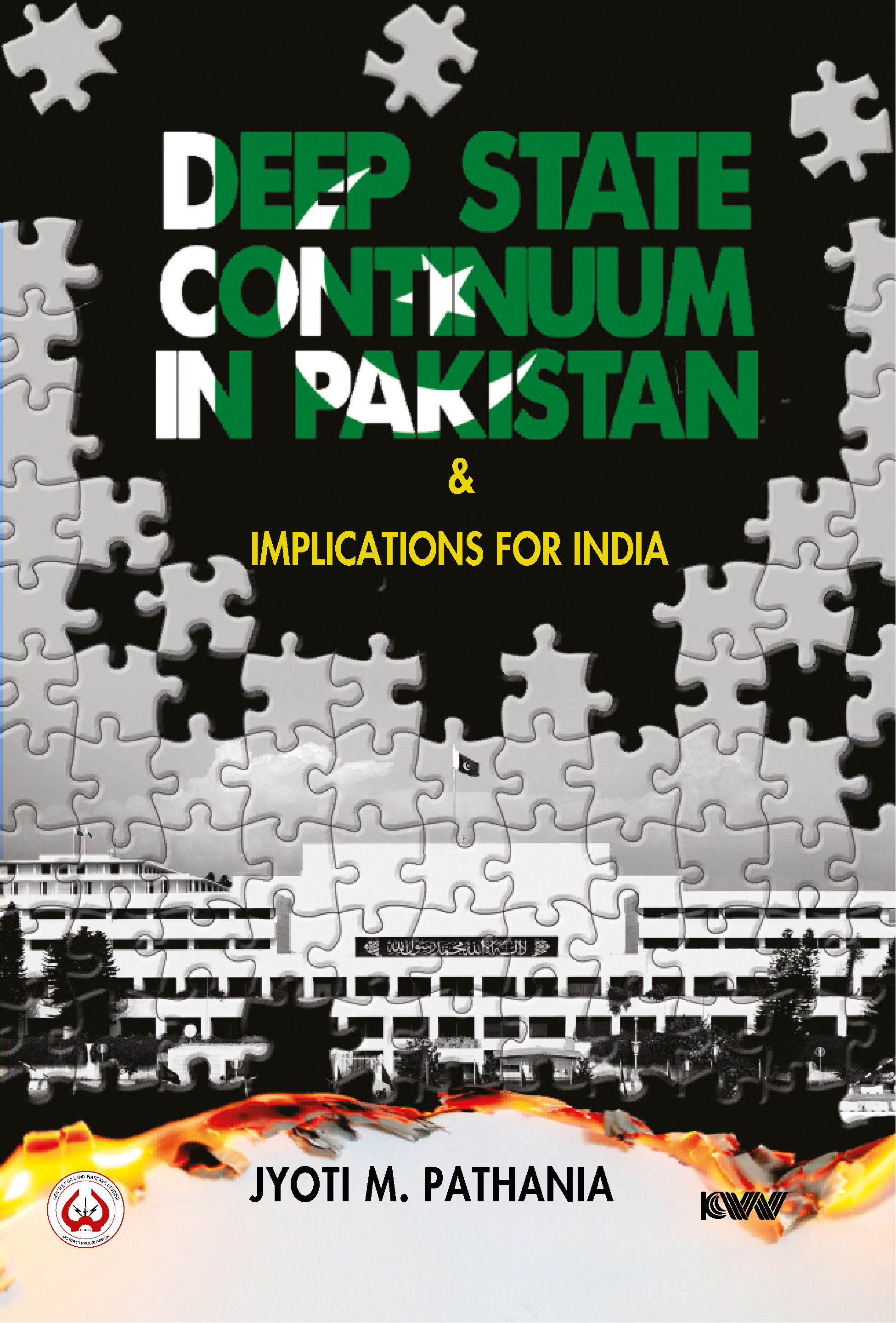Subjects
Recent View(s)
- Globalisation and Development: Current Trends
- Space Security: Emerging Technologies and Trends
- 2019: Will Modi Win?<br>(Now available with an updated supplement)
- Deep State Continuum in Pakistan & Implications for India
- PLA Modernisation and Force Restructuring
- India and the Global South: History, Challenges, and Future in World Politics
Deep State Continuum in Pakistan & Implications for India
Jyoti M. Pathania
“Dr.Jyoti M. Pathania’s work is an important piece of scholarship. Pakistan’s Deep State has an inordinate influence on our region. It deserves to be under India’s microscope, to be studied closely by scholars experts and policy-makers.”
Ambassador Ajay Bisaria
Former High Commissioner of India to Pakistan
“The book decodes the theoretical underpinnings of the term deep state as part of a larger discourse on geo-political and security studies. The deep state’s influence in Pakistan having geo-strategic ramifications for India, makes this book extremely significant and relevant. An exceptionally detailed research and well-structured analysis presented in a lucid form. A must read for the strategic and defence community.”
General NC Vij, PVSM, UYSM, AVSM (Retd)
Former Indian Chief of Army Staff
“A brilliant pioneering study of the Deep State in Pakistan and its implications for India. The book draws out comprehensively the serpentine character of the Military Intelligence Complex in Pakistan and the reality of Uniformed Democracy controlled by the GHQ in Rawalpindi. Essential reading for all those concerned about South Asia and its future.”
Professor Amitabh Mattoo, D. Phil. (Oxon.), Padma Shri
School of International Studies, Jawaharlal Nehru University, New Delhi
“Dr Jyoti M. Pathania has produced a timely and essential new study on the Pakistani Army and its broader security establishment. While Pakistan has experienced major political changes in recent years, the military continues to be the country’s most powerful political actor. With Pakistan’s relationship with India in a dangerously deep freeze, and with the Taliban victory in Afghanistan increasing Pakistan’s access and influence in that country, the current state of play with Pakistan’s deep state has major implications for India. Dr.Pathania navigates this complex landscape with great skill and lucidity.”
Mr Michael Kugelman
Deputy Director, Woodrow Wilson Centre, Washington DC, USA
Book
A relatively new, fascinating yet under researched term, Deep State used in the field of International Relations, is decoded in the book with theory and facts, as a part of the larger discourse on geo-politics and geo-strategic studies, thus filling the gaps on the subject. What does the term deep state mean? When did it become part of the international relations vocabulary? What are the driving forces behind it? Such intriguing queries are answered by tracing the idea from Indian political thinker, Kautilya in the 4th century BC, to its modern day avatar in Turkey in the 1990s.
The book delineates the seminal concepts in context of deep state in Pakistan and elucidates on its ramifications for India, by disseminating how behind the democratised elected parliament, “majlis-e Shura” is the iron fist which is yielding real power. As a result, Uniformed democracy (coined by author) has persevered. Pak’s deep state complexities are decrypted by tracing its growth through pre-independence and post-independence era’s and categorising its evolution into various phases. In each chapter of the book, important adjuncts of the invincible army are examined in depth, including a first-of-its-kind study on the ISPR’s information warfare as the most important weapon of the Pak Army.
South Asia’s progress has been impacted by the conflictual relations between the two nuclear neighbours. Can this be attributed to the Deep State?


 Political Science
Political Science
